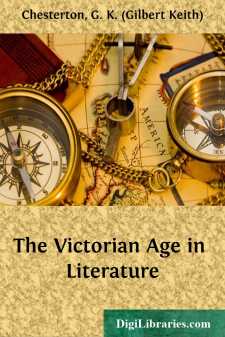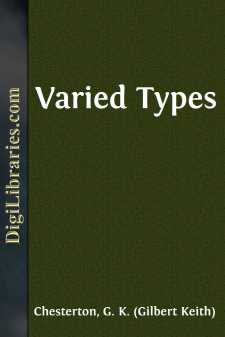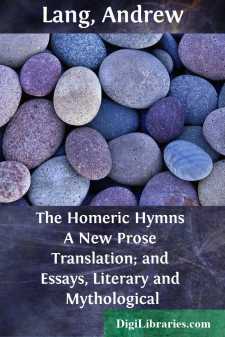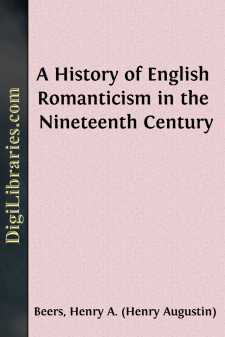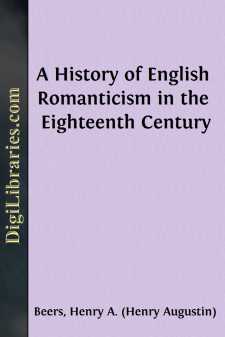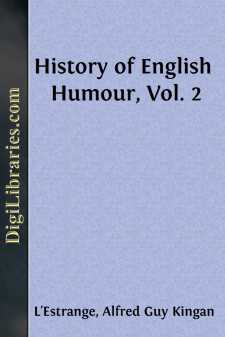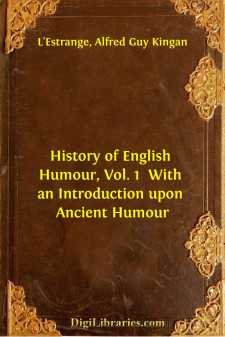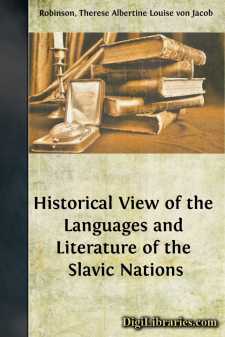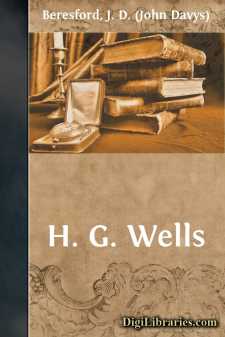Literary Criticism
- American 18
- Ancient and Classical 3
- Asian 1
- Australian & Oceanian 1
- Books & Reading 8
- Caribbean & Latin American 2
- Drama 2
- English, Irish, Scottish, Welsh 49
- European 7
- General 37
- Horror 1
- Humor 2
- Jewish 2
- Medieval 2
- Middle Eastern 3
- Poetry 7
- Renaissance 6
- Russian & Former Soviet Union 1
- Shakespeare 27
Literary Criticism Books
Sort by:
INTRODUCTION A section of a long and splendid literature can be most conveniently treated in one of two ways. It can be divided as one cuts a currant cake or a Gruyère cheese, taking the currants (or the holes) as they come. Or it can be divided as one cuts wood—along the grain: if one thinks that there is a grain. But the two are never the same: the names never come in the same order in actual time...
more...
CHARLOTTE BRONTË Objection is often raised against realistic biography because it reveals so much that is important and even sacred about a man's life. The real objection to it will rather be found in the fact that it reveals about a man the precise points which are unimportant. It reveals and asserts and insists on exactly those things in a man's life of which the man himself is wholly...
more...
by:
Andrew Lang
ESSAYS INTRODUCTORY THE SO-CALLED HOMERIC HYMNS “The existing collection of the Hymns is of unknown editorship, unknown date, and unknown purpose,” says Baumeister. Why any man should have collected the little preludes of five or six lines in length, and of purely conventional character, while he did not copy out the longer poems to which they probably served as preludes, is a mystery. The...
more...
CHAPTER I. Walter Scott.[1] It was reserved for Walter Scott, "the Ariosto of the North," "the historiographer royal of feudalism," to accomplish the task which his eighteenth-century forerunners had essayed in vain. He possessed the true enchanter's wand, the historic imagination. With this in his hand, he raised the dead past to life, made it once more conceivable, made it even...
more...
CHAPTER I. The Subject Defined To attempt at the outset a rigid definition of the word romanticism would be to anticipate the substance of this volume. To furnish an answer to the question—What is, or was, romanticism? or, at least, What is, or was English romanticism?—is one of my main purposes herein, and the reader will be invited to examine a good many literary documents, and to do a certain...
more...
CHAPTER I. Burlesque—Parody—The "Splendid Shilling"—Prior—Pope—Ambrose Philips—Parodies of Gray's Elegy—Gay. Burlesque, that is comic imitation, comprises parody and caricature. The latter is a valuable addition to humorous narrative, as we see in the sketches of Gillray, Cruikshank and others. By itself it is not sufficiently suggestive and affords no story or conversation....
more...
INTRODUCTION. PART I. ORIGIN OF HUMOUR. Pleasure in Humour—What is Laughter?—Sympathy—First Phases—Gradual Development—Emotional Phase—Laughter of Pleasure—Hostile Laughter—Is there any sense of the Ludicrous in the Lower Animals?—Samson—David—Solomon—Proverbs—Fables. Few of the blessings we enjoy are of greater value than the gift of humour. The pleasure attendant upon it...
more...
INTRODUCTION The earliest history of the Slavic nations is involved in a darkness, which all the investigations of diligent and sagacious modern historians and philologians have not been able to clear up. The analogy between their language and the Sanscrit, seems to indicate their origin from India; but to ascertain the time at which they first entered Europe, is now no longer possible. Probably this...
more...
INTRODUCTION THE NORMALITY OF MR WELLS In his Preface to the Unpleasant Plays, Mr Shaw boasts his possession of "normal sight." The adjective is the oculist's, and the application of it is Mr Shaw's, but while the phrase is misleading until it is explained to suit a particular purpose, it has a pleasing adaptability, and I can find none better as a key to the works of Mr H.G. Wells....
more...
INTRODUCTION ESTHONIA Esthonia, or Estonia, as some prefer to write it, is the most northerly of the three so-called German or Baltic provinces of Russia—Esthonia, Livonia, and Courland. It is bounded on the north by the Gulf of Finland, which lies between that country and Esthonia; on the east by the Government of St. Petersburg; on the south by Livonia, and on the west by the Baltic. Opposite its...
more...


